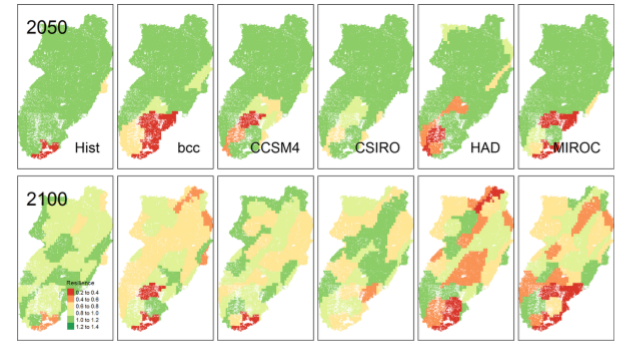Postdoctoral Researcher to study climate change and disturbances in Siberia
This outreach notice is an early alert to inform potential applicants that the Department of Geography at Portland State University will soon be advertising for a 2+ year post-doctoral researcher funded by the National Science Foundation.
The successful candidate will be a member of an international interdisciplinary team of landscape ecologists, forest ecologists, and spatial modelers at Portland State University, the U.S. Forest Service and the International Institute for Applied Systems Analysis in Laxenburg, Austria. The candidate will estimate the ability of arctic and boreal ecosystems to keep pace with climate change and to quantify temporal and spatial variation in biome shifts and C stocks across a large latitudinal gradient in Siberian Russia (https://www.nsf.gov/awardsearch/showAward?AWD_ID=1844435). Capitalizing on a rich and underutilized empirical dataset of Siberia, we will project future species composition and C dynamics under climate change using a landscape-scale forest simulation model (LANDIS-II) and compare our results to similar output from a global scale DGVM (CLM-FATES). The results will be used to improve how DGVMs account for landscape-scale processes such as dispersal, disturbance and species-level interactions, which will ultimately impact the land cover inputs used by Global Circulation Models to project future global climate. The successful candidate will have primary responsibility for the LANDIS-II modeling portion of the project.
Major duties and tasks of the position:
· Develop and validate initial conditions for the study area
· Improve capabilities to model non-tree species (e.g., shrubs, sphagnum, grass).
· Verify and validate permafrost behavior and hydrological impacts in the model.
· Calibrate disturbances for each study area.
· Assist in developing and testing a new LANDIS-II output extension to estimate land surface albedo.
· Conduct simulation experiments and analyze spatial and tabular outputs using GIS, R and other analytical tools to test hypotheses.
· Collaborate with project personnel to publish and disseminate results.
The position will be located at the US Forest Service Institute for Applied Ecosystems in Rhinelander, WI for approximately the first 14 months of the appointment, and then at Portland State University in Portland, OR for an additional 12 months. Compensation includes an annual salary of $54,000 with health benefits provided by Portland State. The position will be officially advertised in mid-October and will begin on Jan 15, 2020, although it could begin as late as March 1, 2020.
Contact Information
To express interest in this position please send an email, including a current CV and 1-pg letter of interest describing how your experience prepares you for the duties of the position, to Dr. Melissa Lucash (Principal Investigator) at lucash@pdx.edu.




